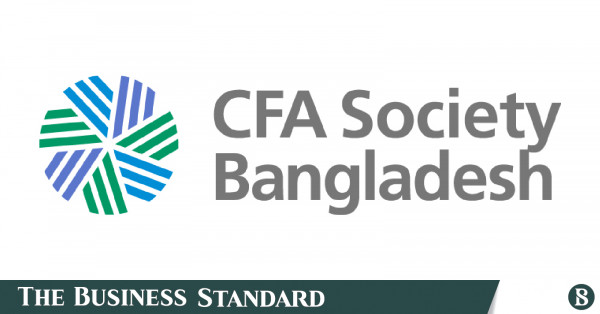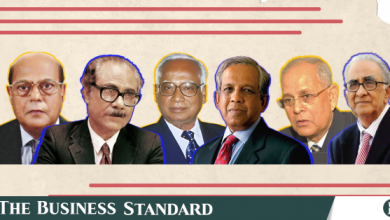CFA Society recommends changing IPO valuation method


To attract fundamentally strong companies to list their shares on the stock exchanges, the CFA Society Bangladesh recommends revising the valuation process to ensure a fair assessment of share value during initial public offerings (IPO).
The society made the recommendation at an event titled “Policy Recommendations on Economy, capital markets and the Banking Sector” held in Dhaka today.
At the event, Asif Khan, president of the society, presented the recommendations for the economy and banking Sector, while Kazi Monirul Islam, secretary of the society, presented the recommendations for the capital markets.
The CFA Society will share the recommendations with the relevant authorities of the interim government, said Asif in the opening speech.
The CFA Society Bangladesh says it is a professional organisation committed to advancing ethics, market integrity, and excellence in the investment management profession. The society currently has 131 regular members and 87 associate members.
In his presentation on the capital market, CFA Society secretary Monirul emphasised that the regulator should revise the IPO pricing method to attract higher-quality offerings.
Monirul, also CEO at Shanta Asset Management, encouraged the reintroduction of the Dutch auction method to determine share prices, allowing issuing companies to achieve a fair valuation that aligns with their expectations.
Additionally, he urged the regulator to avoid interfering in the share price determination process.
Monirul highlighted that firms raised only Tk500 crore from the capital market in 2023, while BRAC Bank alone disbursed Tk10,000 crore, a disparity he described as highly unacceptable.
He also noted that IPO fundraising in Bangladesh accounts for just 0.6% when compared to neighbouring India, underscoring the need for significant improvements in the country’s capital market.
In his presentation, he further recommended several key measures to develop the capital market, including strengthening the mutual fund industry, improving the quality of corporate disclosures, enhancing expert communication about the market, developing a robust bond market, reviewing margin loan practices, and, most importantly, fostering greater trust in the market.
Floor prices have caused huge losses in the capital markets. CFA Society Bangladesh has urged that the floor price should never return to the capital market.
The CFA Society secretary said that the floor price has caused a great loss in the capital market. “Foreign investors have a negative perception of our market. Many foreign investors will never come to invest in Bangladesh’s capital market again. That is why the floor price should never return to the capital market,” he said.
In his presentation, Asif emphasised the need for significant reforms in the banking sector to improve transparency, especially given the current challenges the sector is facing.
Asif, also chairman of Edge Asset Management, proposed several policy changes, including ensuring the independence of the central bank, improving banking sector governance, better management of non-performing loans, and strengthening the capital base of banks.
The CFA Society president said there is no need for 20 directors in the bank’s board, it should be reduced to 15 members. The number of independent directors should be set for at least five in each bank.
The central bank should allow one family member on a bank board and one from depositors as a representative, he said.
Minhaz Zia, a senior member of the CFA Society, said banks operate primarily using deposits from the general public, with only a small portion of their total equity coming from shareholders.
“Despite this nominal contribution, shareholders often assert ownership over the bank, allowing them to exploit various advantages—an outcome that is far from ideal. Instead of being referred to as ‘owners,’ this group should more appropriately be called ‘sponsors’ of the bank,” he said.
Asif highlighted the importance of flexible macroeconomic policies, particularly in managing inflation.
He suggested that both the government and the central bank should be able to revise the monetary policy as needed, rather than being limited to only two adjustments per year. Citing the example of the United States, which revised its monetary policy eight times in a single year, he questioned why similar flexibility could not be adopted in Bangladesh.



